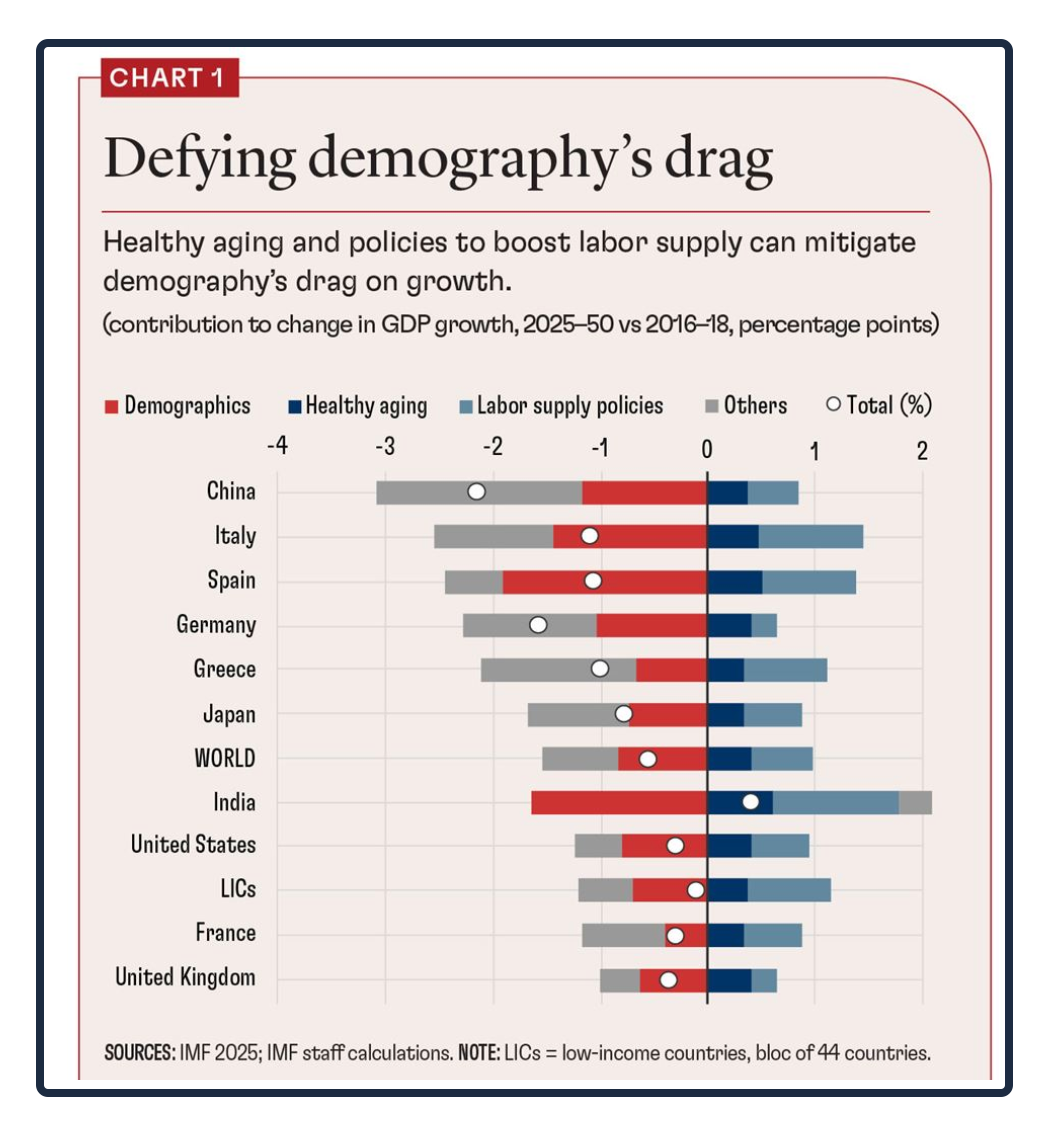
Who Owns a View?
July 21, 2025
What a Rising Sea Level Can Shrink
July 23, 2025The IMF tells us that the 70s are the new 50s. And yes, ask any 76-year-old how old they feel and the answer will be close to 45.
As a result, aging has just gotten a bit more complicated.
Demographic Drag
In a new study, the IMF suggests that we should tweak the demographic drag we’ve all expected. Although elderly populations will slow growth, healthier aging offsets the tug.
Below, the dark blue sections of each bar point us to the impact of healthy aging:

Looking at 41 advanced and emerging market economies, IMF research concluded that a 77-year-old in 2022 had the same cognitive health as 53-year-old in 2000. Consequently, today’s 70-year-old can retain a tie to the labor force that could bring a 30 percent earnings increase. Predictably, more wage earners boost the GDP.
To all of this we can add studies that confirm our chronological age really might differ from our biology. One Yale Medical School professor, Morgan Levine, says we can calculate our biological age with nine biomarkers. She told CNN that they included blood sugar, kidney, and liver metrics that make 65-, 70-, or 80-year-olds younger than they appear.
Our Bottom Line: Aging Populations
So yes, the impact of aging is not only complicated but also may be misleading.
Usually, we refer to age dependency ratios that emphasize the demographic drag. Mathematically comparing the size of the elderly cohort to the working population, the numbers indicate relatively fewer workers will support everyone. Especially with lower fertility rates the imbalance between the old and young could accelerate.
The math however might be ignoring reality.
Retired for a shorter time, a healthier aged cohort that works can add more to the GDP and subtract less from public finance. Mathematically comparing the size of the elderly cohort to the working population, the numbers ignore that 70 is the new 50.
My sources and more: With the IMF and The Atlantic, we had that pleasant experience of two articles unexpectedly converging with different perspectives about aging.
Please note that several of today’s sentences were in a past econlife post.
![econlifelogotrademarkedwebsitelogo[1]](/wp-content/uploads/2024/05/econlifelogotrademarkedwebsitelogo1.png#100878)




